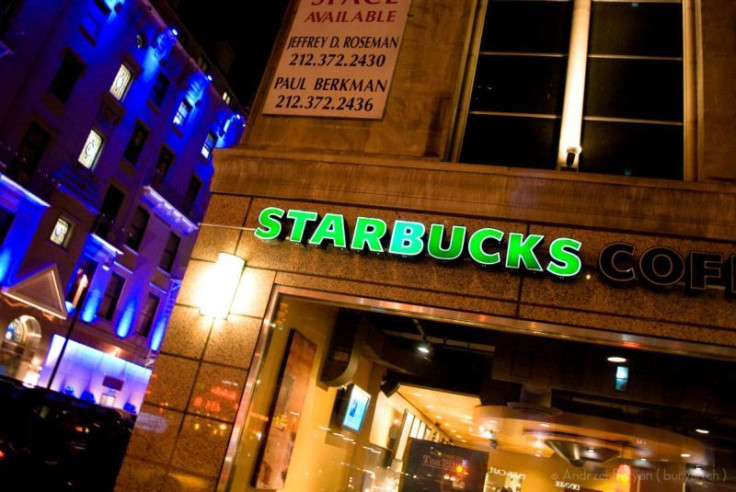Howard Schultz, Starbucks CEO, Says Coffee And Guns Don’t Mix: Can Caffeine Make You More Likely To Murder?

In an open letter to Americans, Starbucks CEO Howard Schultz requested that customers in his stores and in the outdoor seating areas do not carry guns because he’s seen the debate about gun control become increasingly uncivil. But is Schultz making a statement to protect his customers, staff, and stores or does he believe that caffeine consumption can become a catalyst for violence?
"At this point we'll sit and monitor the situation," Schultz told USA Today. "We're hoping that most people will honor the request."
In the letter, Schultz explains that Starbucks locations have been used for both pro-gun and anti-gun events. And, while he respects Americans’ rights to openly carry a firearm in public, he is concerned that the rallies in his stores — amid the very tense political climate — are not safe for other, non-gun-carrying customers. The company has taken out full-page advertisements in USA Today, the New York Times, the Wall Street Journal, and the Washington Post slated to run this coming Thursday. The ads will announce the change in the store’s open-carry policy.
"The presence of a weapon in our stores is unsettling and upsetting for many of our customers,” said Schultz.
But does the presence of caffeine in Starbucks (and in the gun debate) make something like gun violence more likely?
Caffeine And Mental Health
Caffeine is actually a psychoactive substance, meaning it interacts with your brain and can cause some behavioral changes. There are four recognized psychiatric disorders that are specifically caffeine-related. There’s caffeine intoxication, caffeine-induced anxiety disorder, caffeine-induced sleep disorder, and caffeine-related disorder NOS. These disorders include symptoms like restlessness, nervousness, insomnia, and anxiety.
According to an article on Livestrong.com, too much caffeine can cause anger and confusion. Though it relieves drowsiness and inattentiveness, caffeine can cause increased feelings of anxiety, irritability, and anger.
Lengthy, heated protests in stores that sell several caffeine-heavy substances do carry with them some inherent risks based on the potential for heightened anger and irritability related to the ingestion of caffeine. So maybe Starbucks is on to something.
“Pro-gun activists have used our stores as a political stage for media events misleadingly called ‘Starbucks Appreciation Days’ that disingenuously portray Starbucks as a champion of open carry,” Schultz wrote. “To be clear: we do not want these events in our stores.”
Caffeine And The Insanity Defense
In one of the most cited cases in recent history, Kentucky defendant Woody Will Smith claimed that caffeine intoxication from too many energy drinks caused him to strangle his wife to death. He plead temporary insanity.
“Sexton filed notice with the Newport court of plans to argue his client ingested so much caffeine in the days leading up to the killing that it rendered him temporarily insane — unable even to form the intent of committing a crime,” the Associated Press reported.
Smith claimed that the caffeine he ingested mad him “lethargic” and “not himself.” He even had a psychologist testify on his behalf, saying that Smith remembered very little about the hours before and after murdering his wife. The jury didn’t buy it, convicting him of murder and recommending a sentence of life in prison.
But a man in Moscow, Idaho was a little luckier. Daniel Noble claimed that caffeine he ingested in two 16-ounce Starbucks Doubleshots caused him to veer off the road, strike two college students with his car, flee the scene, and engage in a scuffle with police. Charged with vehicular assault, a judge granted a motion to acquit Noble by reason of insanity. Noble was told to receive treatment for his caffeine-related problem under the court’s supervision.
You can read Schultz’s full request to end open carry in Starbucks stores at Starbucks.com.



























